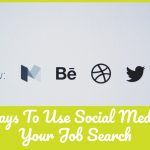
Self-Made or Template: Your Resume Matters, Which Type is Best for You?
When it comes to landing the perfect job, few things are as important as your resume. You may not have much of an opportunity to state your case in person before a potential hiring manager, but by making your resume stand out, you’ll be able to make a strong first impression that will possibly lead to that crucial first (and second) interview.
The debate rages on, then.
Do you make your own resume yourself or use a template to follow?
Here’s a short answer: it depends.
If you value time and efficiency above all else, then by all means, use a template. But if you want to personalize it and make it your own, write your own resume from scratch.
Still searching for what to do?
Here are a few rules that could help.
Your Resume Can Be a Place to Showcase Your Skills, Visually
While you can change templates slightly, it will never give you the unbridled freedom that making your own from scratch will. This can come in handy especially if you’re in a creative field, such as digital graphics or advertising. Since you’re angling for a job where you will have to demonstrate your proficiency in visual arts, use your resume as a canvas to demonstrate your skills. Don’t go overboard, however; a resume that looks cluttered and too busy will come off as obnoxious.
“Generic” Templates Don’t Really Look Generic
Experienced hiring managers have seen thousands of resumes over the years and can generally spot a template from a mile away, especially the ones that come standard on every piece of Office software available. That being said, the problem with those types of templates is because everyone uses them. If you use a template that is not as widespread as those, such as these from https://www.livecareer.com/resume-templates, they’ll allow you to simply plug in your information and send. And honestly, even if a recruiter spots a template in the first place, it shouldn’t matter if you have the necessary experience, skills, and education necessary.
Why Not Have the Best of Both Worlds?
Don’t make the mistake of assuming you can either only use a template or only use a made-from-scratch resume; in many cases, you can take a pre-made template and adapt it to your needs. Chances are you’ll find things you like and dislike about every template you find, so take various elements from one and adapt it to a different one, creating a virtually new template that no HR recruiter has ever seen before. If you’re artistically challenged, this could be dangerous territory, so it’s always better to consult a professional during or after the process. Better yet, you might also consider hiring a designer to create a custom-made resume template for you to use every time; it’s a small investment that could make a big impression.
Regardless of what others may say, there’s not a right or wrong answer to this question if you approach it the right way. While some templates can look generic, other hand-made templates can actually hurt your chances if they look bad. It ultimately boils down to your career and what you believe your recruiters value, but at the very least, it needs to look professional and highlight the appropriate credentials.
© New To HR


